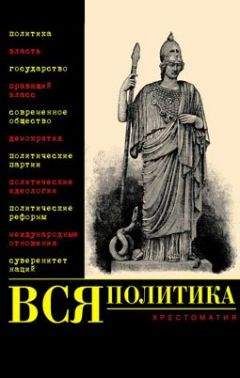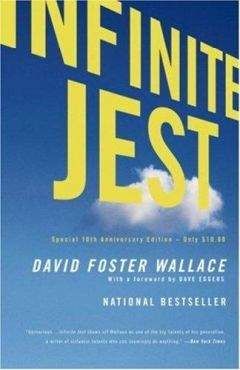staged the most remarkable comeback in Soviet history. His
reputation as an advocate of democracy and economic reform had
survived his fall, and he now became the people's champion in
Moscow, winning a multicandidate election to the U.S.S.R. Congress
of People's Deputies (i.e., the new Soviet parliament) in March
1989 by a landslide. A year later, on May 29, 1990, the parliament
of the Russian S.F.S.R. elected him president of the Russian
republic against Gorbachev's wishes. In his new role, Yeltsin
publicly supported the right of Soviet republics to greater
autonomy within the Soviet Union, took steps to give the Russian
republic more autonomy, and declared himself in favour of a
market-oriented economy and a multiparty political system.
In July 1990 Yeltsin quit the Communist Party. His victory in the
first direct, popular elections for the presidency of the Russian
republic (June 1991) was seen as a mandate for economic reform.
During the brief coup against Gorbachev by hard-line Communists in
August 1991, Yeltsin defied the coup leaders and rallied
resistance in Moscow while calling for the return of Gorbachev.
When the coup crumbled a few days after it had begun, Yeltsin
emerged as the country's most powerful political figure. In
December 1991 he and the presidents of Ukraine and Belarus
(Belorussia) established a new Commonwealth of Independent States
that would replace the foundering U.S.S.R. When the Soviet Union
collapsed after Gorbachev's resignation as Soviet president on
December 25, the Russian government under Yeltsin's leadership
then assumed many of the former superpower's responsibilities for
defense, foreign affairs, and finance.
As president of an independent Russia, Yeltsin set about the
formidable task of transforming his country's decaying command
economy into one based on free markets and private enterprise.
Early in 1992 he ended government price subsidies and controls
over food and other consumer goods, while also allowing the
unhindered growth of free markets in the cities. In
September-October 1993 Yeltsin's leadership was severely tested
when hard-line legislators staged a coup after Yeltsin had
dissolved parliament. Although the coup was suppressed, Yeltsin's
supporters fared poorly in elections held in December.
EUROPE ADRIFT AFTER THE COLD WAR: Relations with Russia.
20th-Century International Relations Relations with Russia.
Even the prospect of a unified Europe could not ensure peace and
prosperity unless two other issues were addressed: the future of
NATO and the relationship among the EU, the United States, and the
struggling democracies of eastern Europe, above all Russia.
Western relations with the new Russia began auspiciously. In early
1992 Yeltsin toured western Europe and signed friendship treaties
with Britain and France in exchange for aid and credits. On Jan.
3, 1993, Bush and Yeltsin signed the START II pact, promising to
slash their long-range nuclear arsenals by two-thirds within a
decade. After a personal appeal from former President Richard
Nixon, the Bush administration also approved an economic
assistance package for Russia, and Congress voted funds to help
Russia dismantle its nuclear weapons. On April 4, 1993, at a
summit meeting with Yeltsin at Vancouver, Clinton pledged an
additional $1,600,000,000 in aid. It remained unclear, however,
how much the Western powers could influence Russia's future. Did
outside assistance hasten Russia's progress toward capitalism, or
just help it to subsidize old, inefficient industries? Should
Western leaders urge "shock therapy" to propel Russia quickly into
capitalist modes even at the risk of high unemployment, or should
they advise Yeltsin to reform slowly? Should NATO stand firm
against signs of Russian assertion in foreign policy, or might
accommodationist policies boost Yeltsin's popularity at home?
Such questions became paramount after September 1993 when a
coalition of Yeltsin's opponents in the Russian Congress of
People's Deputies challenged his reforms and emergency powers and
called for the President's ouster. On September 21 Yeltsin
dissolved the parliament, and the latter promptly impeached him in
favour of deposed Vice President Aleksandr Rutskoy. Violence soon
erupted between security forces and mobs of Communist and
nationalist sympathizers marching in support of the insurgent
deputies. On October 4, Yeltsin ordered army units to attack the
parliament with heavy weapons, resulting in an estimated 142
deaths. He clearly was acting in "undemocratic" fashion, but he
did so to suppress opponents of democracy who had been elected
under the Communist constitution. When fully free elections were
held in December 1993, however, ex-Communists and extreme
nationalists led by Vladimir Zhirinovsky won stunning victories.
Clinton's expert on Russian affairs, Strobe Talbott, immediately
called for "less shock, more therapy" in Russian economic policy,
and Yelstin proceeded to dismiss his more liberal ministers. He
also took a harder line in foreign policy in hopes of deflecting
the criticism that he was too eager to please his Western
benefactors.
This ominous turn of events called into question the fundamental
assumption of Russian partnership that underpinned Clinton's
foreign policy.
Copyright (c) 1996 Encyclopaedia Britannica, Inc. All Rights
Reserved
Анализируя карьеру Ельцина, можно утверждать, что вначале это была типичная карьера советского гражданина построенная не на знаниях и умственных способностях, а на умении приспосабливаться. Таким же как Б.Ельцин был Л.Брежнев. Извлеченный из провинции в Москву Н.Хрущевым, Л.Брежнев поторопился спихнуть и занять его место при первой возможности. Б.Ельцин был извлечен из провинции Б.Горбачевым и спихнул последнего при первой же возможности. Чтобы выдернуть трон из-под М.Горбачева, во имя личных интересов он разваливает крепко сколоченную огромную империю и оставляет миллионы русских брошенными в бывших колониях. Поведение Б.Ельцина хорошо описывается "Железным законом олигархии" Роберта Михельса и тем, что я пишу в четвертой главе своей книги о стереотипной психологии голема. Пока Б.Ельцин был внизу он был сторонник свободы и демократии, но как только он выбрался наверх, он крепко вцепился в свое место и силой разгоняте Государственную Думу. Не обладая никакими знаниями в области экономики и социологии, он правит страной посредством своих инстинктов. В этом отношении он ничем не отличается от И.Сталина. Разница лишь в направлении. И.Сталин сплачивал народ и для этого он ликвидировал НЭП, создавал колхозы и Архипелаг ГУЛаг. Марксистская идеология отвечала потребностям И.Сталина и была им положена в основу. Б.Елцин разваливает все что только можно. Сравнительно за короткий срок он развалил империю, развалил страну, развалил марксистскую идеологию, развалил армию, развалил социалистическую экономику... При Б.Ельцине началась гражданская война на Северном Кавказе. Сначала это была Чечня, которая отделилась от России. Процесс развала не окончен. Кто еще отделится?
Что Б.Ельцин построил или создал? - Совершенно ничего. Чтобы создавать, надо иметь хоть какую-нибудь идеологию или религию. Надо иметь хоть какое-то образование. У И.Сталина хоть и не было никакого образования, но была религия.
После того как я прокомментировал с точки зрения социальной динамики карьеру вождя России Б.Ельцина можно вернуться к основной теме. Вождь - это вектор скорости общества приложенный в центре тяжести. Вектор скорости, который мы назовем Б.Ельцин, направлен в сторону анархии и развала. Скорость угрожающе велика. Пользуясь социальной динамикой, можно было бы предсказать то, что происходит сегодня в России еще раньше. Однако, даже теперь в 1998 году мало кто готов принять мои заключения.
Когда делается какой-то прогноз, то он делается с какой-то ошибкой, с какой-то вероятностью. Мой прогноз сделан со сто процентной точностью. Единственная ошибка может быть в установлении времени. Различные факторы, как например, кредиты с Запада, могут несколько затянуть, другие ускорить, однако главное смена анархии на сплоченное общество, остается неизменным.
Если вернуться к методу точек на траектории, то мы видим, что еще десять лет назад Россия представляла собой крепко сплоченное общество Gemeinschaft. Сегодня это Анархия в ее крайней форме.
В свете изложенного возникает вопрос, куда может привести ельцинское руководство Россию? Я повторяю здесь то, что уже было сказано выше. Россия на траектории в последней стадии Анархии. Следующая стадия переворот или гражданская война и сплочение общества. Иного выхода нет.
Я надеюсь изложенный мной пример помогает освоить принципы и применение социальной динамики.
Raddai Raikhlin, Ph.D., was born in Moscow in 1929. He state working at the age of 13 always continuing steadies with working for a living. In 1953 he graduated from the Naval Academy in Leningrad. He then continued his studies at the Moscow University and Institute of Energetic. He worked as en electronics engineer and in 1964 received the doctoral degree. In addition to scientific articles, he wrote popular-science articles in well-known journals. Among the patents received by them are patents for methods for receiving and transmitting gravitational waves. In 1973 he emigrated to Israel and settled in Haifa. He worked at the Technion (Israel Institute of Technology) for 10 years. After leaving the Technion his interests went to Sociology and he has been trying to design a computer model of society. In 1991 the book "Theory of Robots" was published in Russian - In the book one finds a description of the human stereotype called Robot, its features and behavior, as well as the society formed by him. The author's main interest lies with studying the cohesion within society and of discipline; he defined the conditions required for creation cohesion and optimal discipline. As he believes that social cohesion is related to religion, the author lent special attention to studying religion and comparing between different religions. This book "Fashion" presents the results of these studies in a popular form. The effect of social cohesion on the behavior of people in illustrated by means of several examples. In this connection, use is made of such social manifestations as fashion styles, dances, religion ceremonies, art and literature, etc.
Comments and Suggestions
Please tell me what you think about this page.
Comments:
From:
Contact Information
Address
R.Raikhlin
9, Hassidei Umot HaOlam St.,
Haifa, 32985, ISRAEL
Electronic mail address
[email protected]
Web address
http://www.israel.net.il/raikhlin
Phone:
972-4-8325677
Fax:
972-4-8325747
Глава 1. Введение в социологию
СИСТЕМА СОЦИОЛОГИИ
ЧТО ТАКОЕ СОЦИАЛЬНАЯ ДИНАМИКА ДВЕ ГРУППЫ ФАКТОРОВ, СПЛАЧИВАЮЩИХ ОБЩЕСТВО РОЛЬ РЕЛИГИИ В СПЛОЧЕНИИ ОБЩЕСТВА ЭНТРОПИЯ ИЛИ МОРАЛЬ ОБЩЕСТВА БЛОК-СХЕМА ОБЩЕСТВА ОБРАЗЦЫ GEMEINSCHAFT GEMEINSCHAFT ХАРАКТЕРИСТИКИ GEMEINSCHAFT Первый список сплачивающих элементов - инстинкты. Второй список, идеологический. АСКЕТИЗМ АНАРХИЯ ГРАЖДАНСКАЯ ВОЙНА SEX AND VIOLENCE ИЕРАРХИЯ РАС СОГЛАСОВАНИЕ ПОЛЯРИЗАЦИЯ И ДЕПОЛЯРИЗАЦИЯ. МЕТОД САЛЯМИ
В первой главе ?Система социологии? читатель получит общие сведения из социологии. Сведения необходимы ему для того, чтобы понять не только используемую в книге терминологию, но и для того чтобы понять то о чем дальше идет речь и какие движущие силы управляют обществом и людьми. Читатель знакомится с конструкцией общества и ее вариациями. В частности, читателю уже следует уяснить, что такие понятия как:



